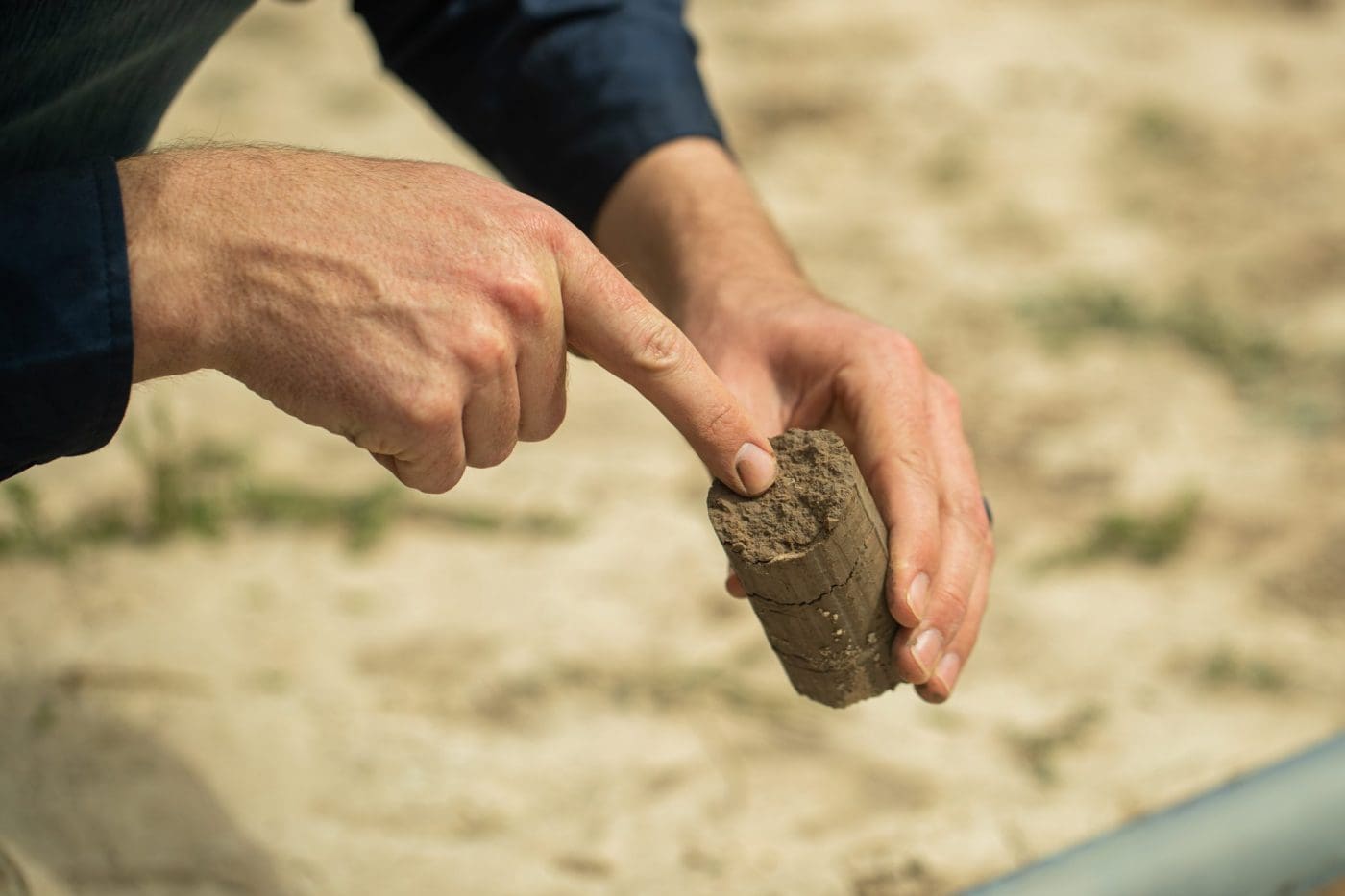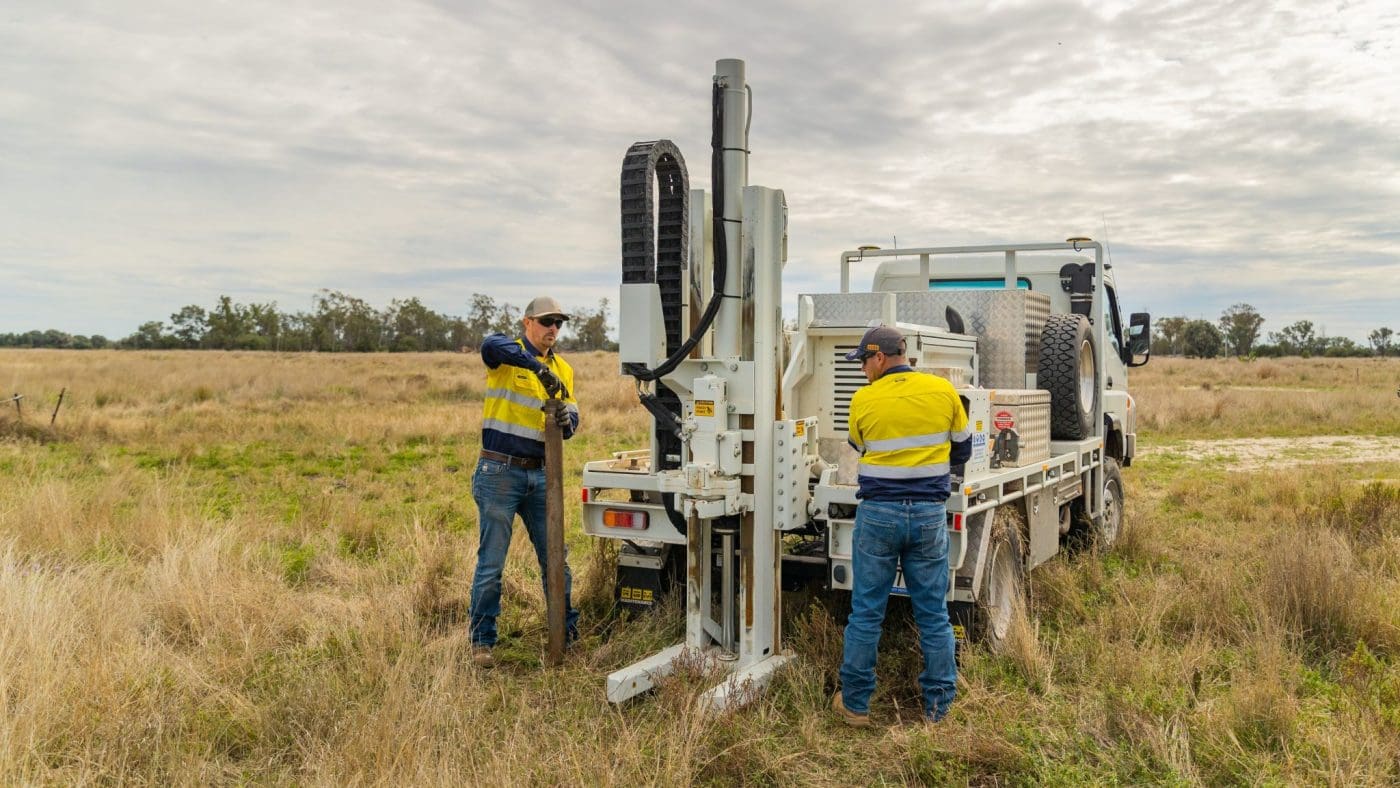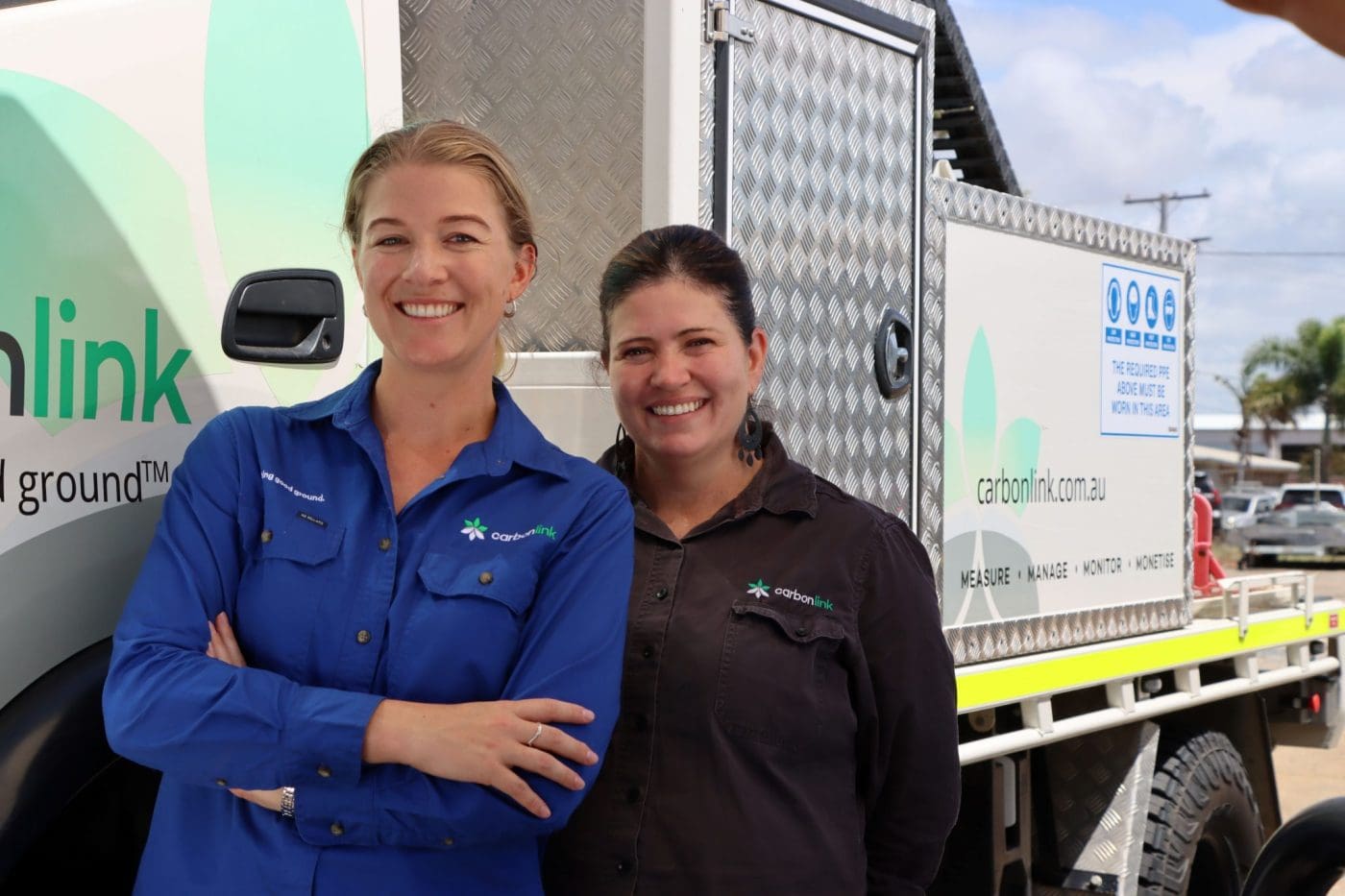SOIL carbon service provider, CarbonLink, has commenced early-stage trials of emerging soil sensing technologies, aiming to make soil carbon measurement faster, more affordable, and more accessible for Australian producers.
The CarbonLink trial brings together global in-field sensor technologies to test their performance under real on-farm conditions across Australia. None of the tools are currently commercially available in the capacity being tested. Each represents a different approach to soil carbon sensing: hand-held, portable down-hole probes, or continuous in-ground monitoring.
Soil carbon is a key part of Australia’s emissions reduction strategy. By improving soil health and land management, landholders can increase the amount of carbon stored in their soils. This carbon can be measured and verified under government-approved methods to generate Australian Carbon Credit Units (ACCUs) – a tradable financial product.
Soil carbon projects don’t require locking up land and can be integrated into active production systems, making them an appealing option for many landholders. Building soil carbon is also associated with improved productivity, resilience, and long-term farm performance. However, barriers such as cost, complexity, and regulatory requirements still limit access to the market – something CarbonLink is working to address.
Established in 2007, CarbonLink entered the soil carbon space with the goal to improve land health across Australia – long before it became a market. In 2012, the company partnered with CSIRO to develop advanced technology for measuring soil carbon, two years ahead of the first government-prescribed method released in 2014.
In 2020, the business launched NetSCAN – a platform that integrates physical soil measurements with remote sensing to estimate carbon stocks across the landscape. NetSCAN set an early benchmark for soil carbon quantification and has been continually improved to enhance the measurement of soil carbon, bulk density, nutrients, texture, and carbon fractions.
By 2024, CarbonLink had completed a successful project pilot using a new hybrid measure-model-measure approach aligned with ‘Schedule 2’ of the 2021 Soil Carbon Method. This methodology involves initial soil sampling, predictive modelling, and follow-up sampling to validate results. The pilot outcomes are currently under preliminary assessment by the Clean Energy Regulator and undergoing international peer review.
Now in 2025, this latest initiative – funded through the National Soil Carbon Innovation Challenge (NSCIC) federal grant program – will explore whether new sensing tools can enhance or complement the Schedule 2 method, furthering their aim of lowering the overall cost of project participation while maintaining rigorous scientific standards.
CarbonLink is the only commercial organisation to receive funding in both the Round 1 and Round 2 of the NSCIC, progressing alongside some of Australia’s top research institutions and universities.
“Our focus is on qualified and quantified data,” said CarbonLink Head of Innovation, Hugh Armitage. “We’re in a rare position – operating with the research depth of a leading institution, but with the practical capability to bring these solutions to market if the data supports it.”
CarbonLink is one of the few companies in the sector with a dedicated in-house R&D team, allowing it to rapidly test, validate and iterate scientific innovations.
“More frequent or site-specific data could help landholders better understand how management decisions are affecting soil carbon, leading to more informed, more profitable choices on-farm.
The systems we’re trialling help bring knowledge forward – creating a feedback loop to understand what’s working, what isn’t, and adapt accordingly,” he said.
Several landholder partners have joined the trial, signalling demand and backing CarbonLink’s commitment to innovation-led, producer-focused outcomes.
“This is research stage only. We’re validating whether these technologies, when paired with NetSCAN, can deliver accurate data in line with regulatory requirements, and in more locations, more affordably.”
Having project-managed the majority of soil carbon credits issued in Australia to date – and with close to 350,000 hectares of land under contract – CarbonLink is confident its latest research will build on its track record of market leadership, driving stronger outcomes for both the environment and landholders.
“CarbonLink welcomes interest from grant bodies, investors, and aligned industries looking to support or partner on the future of trusted, scalable soil carbon solutions.”
For research collaborations or technical queries:
research@carbonlink.com.au
For general or media enquiries, please contact:
info@carbonlink.com.au
For landholders, please fill out the form on the website:




HAVE YOUR SAY